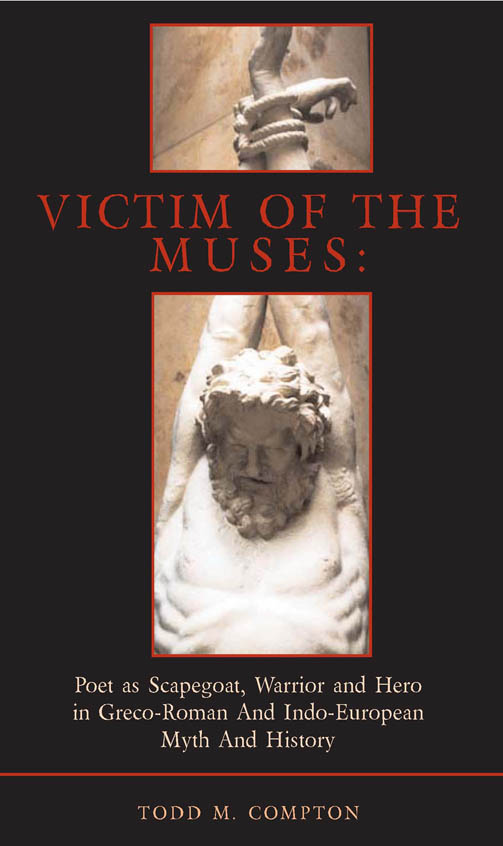

From the cover:
This book, which has relevance both for literary history and comparative religion, probes the narratives of poets who are exiled, tried or executed for their satire. Aesop, fabulist and riddle warrior, is assimilated to the pharmakos--the wretched human scapegoat who is expelled from the city or killed in response to a crisis--after satirizing the Delphians. Other prominent legendary and historical Greek and Roman poets, such as Archilochus, Homer, Hesiod, Sappho, Tyrtaeus, Euripides, Socrates, Naevius, Cicero, Ovid, and Juvenal, are also considered in this context.
In much the same way, Dumezil's Indo-European heroes, Starkathr and Suibhne, are both warrior-poets persecuted by patron deities. This book views the scapegoat as a group's dominant warrior, sent out to confront predators or besieging forces. Both poets and warriors specialize in madness and aggression, are necessary to society, yet dangerous to society.
Testimonia for Victim of the Muses:
The following testimonia are provided because they were often hard to obtain. I have not made any attempt to achieve completeness, but have selected some of the most important texts for the selected subjects.
The font is Gentium , which you may need to read the Greek. This can be downloaded for free.
Greece
The Greek pharmakos (the ritual scapegoat)
Androgeus
Codrus
Aglauros
Ireland
The Story of the Poet Nede and his Uncle, King Caier
The Siege of Howth
Battle of Allen
Rome
The scholiast lives of Juvenal